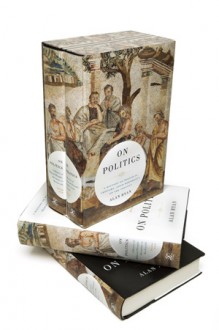
I think I am. Part of the reason involves the usual, nearing-the-finish line fatigue of our once-every-four-years Presidential elections. Another reason for my weariness is that we’ve featured so much political content on the site in recent weeks that it seems like TSP has become the social scientific equivalent of Fox News or MSNBC! “All politics, all the time.” It’s all great stuff, mind you (see for yourself!), and in fact we are in the process of compiling the best of it into a special volume to be published with W.W. Norton, replete with website tie-ins and supplementary teaching and learning content. Nevertheless, I just don’t like to get pigeon-holed or hemmed in—and politics is still far from the only thing we do, or aspire to do.
Still, I think my ennui might go deeper. I guess I’m feeling kind of stuck, moored by a perverse culture of and attitudes about politics in the United States. On the one hand, I’ve got all of these intellectual colleagues, collaborators, and contributors—those I hang out with on campus, meet with at conferences, and work with as contributors to TSP—who are so interested and passionate about politics. On the other, there are many other people in my life—from students and neighborhood friends to parents I see at youth sporting events, those I go to church with, family members, and even my own kids—who have no interest in politics. In this political season, they are kind of fed up with the topic and process altogether, and maybe they’re starting to take me with them!
In spite of all that would seem to be at stake in these elections, it is easy to feel down and disconnected when you see some of the ads, see so many ads, don’t see things going your way, or feel disappointed or betrayed by the performance of politicians, some of whom you worked for, contributed to, and voted for enthusiastically. But I think there is also something else, something deeper underlying the cynicism and malaise so many feel about politics in this country. It has to do with our strange, conflicted attitudes toward government or the State, as well as our deeper difficulties in really knowing how to live in community and work collectively toward a common good.

In trying to take a break recently, I found myself reading a review of Alan Ryan’s new, two-volume history of Western political philosophy On Politics. (Yup, this is a Norton book, and no, this wasn’t much of a break—more of an attempt for distance and perspective). Anyway, it sounds like there is a lot of a great food for thought in the book, but the line that caught my attention in the review (written by Adam Kirsch in the New Yorker) was that “Western political philosophy… exhibits a recurring tendency to imagine that a life without politics is the best life.”
This insight, I think, explains a lot about our ambivalent orientation toward politics in the U.S. It explains, for example, why we often put such high hopes on erstwhile political outsiders, on anti-institutional activism and organizing (be it of the Left or the Right), or single issue social movements or causes. That government is best which governs least. The problem is not just our political processes or institutional systems. Our individualism makes it so that we don’t really know how to organize around and commit to institutions and bodies in the first place. And a deep problem with collective commitment is only made worse by the fact that we also harbor such high hopes and unrealistic expectations for a moral world without the complexities, confusions, conflicts, and messiness of the real (political) world. We don’t really understand government or politics, but we deeply, fervently hope and expect a broader social good to emerge and organize itself.
This past Sunday was Reformation on the Protestant Church calendar. In recognition, the choir I sing in performed a Luther Cantata with a wonderful little line, both musical and rhetorical, expressing hope for “peace and good government.” “That’s so partisan,” one of my fellow bass members scoffed at a break in rehearsal. “What do you mean?” I asked. “Come on,” he said, “good government? You are such a liberal.” As in, how can you really believe there can be good government. I think he was joking, but it spoke volumes.




